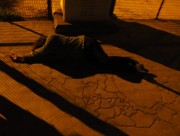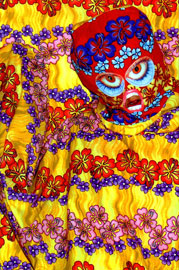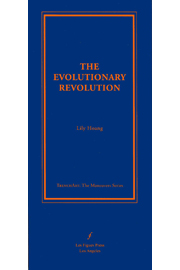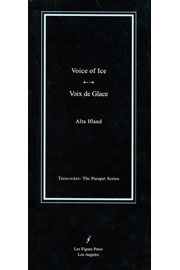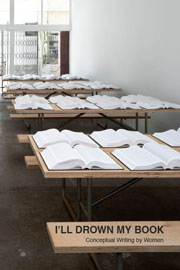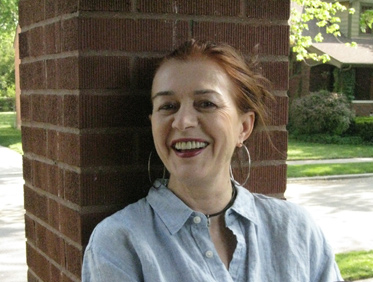Negro Marfil/Ivory Black
Myriam Moscona
Jen Hofer
Translated by Jen Hofer
Introduction by Francine Masiello
Cover art by Renée Petropoulos
Book 2 of 5, TrenchArt Recon Series
Poetry | $15.00
ISBN 13: 978-1-934254-22-6
Size: 9.25 X 4.25
Pages: 140
Binding: Softcover, Perfect
BUY NOW at LARB BOOKS
Winner of the 2012 Harold Morton Landon Translation Award and the PEN Award for Poetry in Translation.
Negro marfil / Ivory Black, Myriam Moscona’s first book translated into English, is a book-length experiment in inversions: at times the text can be read from left to right or vice versa, the poems reverberate from top to bottom or the other way around, at moments the book itself can be read backwards or forwards. The visual and the textual converse acrobatically. Binaries become multiples. As any painter knows, ‘Ivory Black,’ also known as ‘bone char,’ is the name of a color: to obtain ivory black bone is burned.
“Writing backwards (by English- and Spanish-language standards, that is) evokes an array of cultural, linguistic and even spiritual connotations. Further, it objectifies language: words are ‘only fragments/lack,’ a mark on the page in relation to the negative space around it. A thing written backwards is not the thing, nor is it the inverse of the thing. It is another thing, which is also the original thing yet is not the original thing. In other words: translation.”
—from the translator’s notes by Jen Hofer
Praise for Negro marfil / Ivory Black:
“Myriam Moscona’s extraordinary book, Ivory Black, is a treatise on the senses.”
—from the introduction by Francine Masiello
“In the tradition of Mallarmé’s Un Coup de Dés, Brazilian concrete poetry and Octavio Paz’s Blanco, Myriam Moscona’s Negro marfil is a long poem constructed from phrases (or words) arranged on the page in wildly diverse ways: verses in two columns, in dialogue; segments placed in the center of the page; prose paragraphs; splintering words… Negro marfil approaches the fragment with a consciousness that the “target” of intelligible discourse will always be frustrated, that we can only aspire to the marbled charcoal of the ink as it spills over, occluding univocal meaning.”
—Jacobo Sefamí, essayist, critic and UC Irvine professor
“I perceive and read Negro marfil as a text marked by the “memory-laden ear.” Such that language—“errant alphabet”—does not dissolve into nothingness, nor does it freeze on the page of a closed volume: signs dot the trajectory of this extended poem, yet they are points that assemble in the eye—like certain colors, or like the very poem made in the process of reading…as there are no fixed senses, but rather mixtures, superimpositions, intersections…”
—Soledad Biancchi, Chilean poet and critic
“Poetry might be the cracking of the unconscious…understood in the most radical way, that cracking wouldn’t presuppose painting as a unit of meaning; rather, it would be the condition of its possibility. It’s not that the visual image winds up cracking with the passage of time, as experience suggests, but rather the inverse, that there is an originary cracking prior to the image, that facilitates its coming into being…(T)his is a good starting point for understanding the range of Myriam Moscona’s most radical attempt to date to subvert poetic work from within its very foundations.”
—Evodio Escalante, Mexican critic and essayist
“Jen Hofer is among the best translators of Mexican poetry working today, not only for what she brings to the page, but also for what she doesn’t. Hofer does not meddle. She does not seek to arrest control of the poem—and her contribution, therefore, is indispensable.”
– Jason Humpf, Harp & Altar

